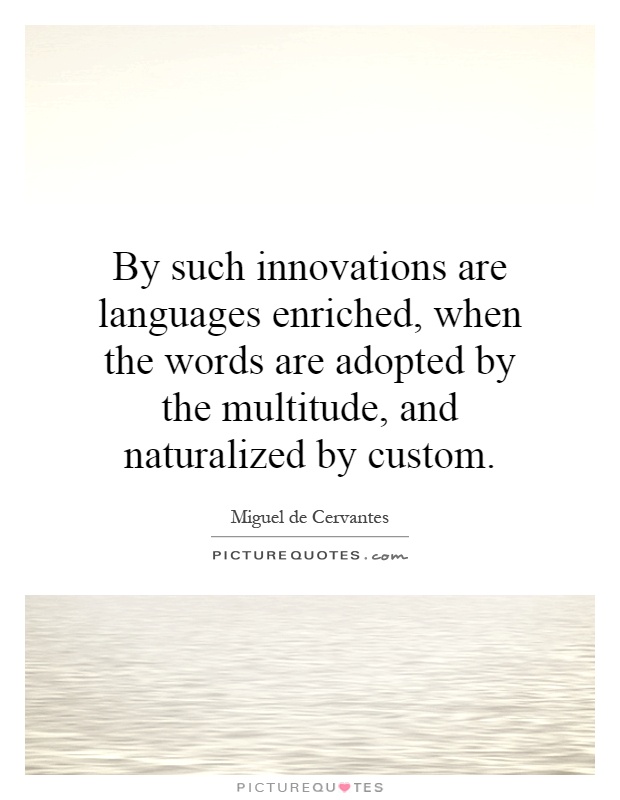By such innovations are languages enriched, when the words are adopted by the multitude, and naturalized by custom

By such innovations are languages enriched, when the words are adopted by the multitude, and naturalized by custom
Miguel de Cervantes, the renowned Spanish writer and author of the classic novel Don Quixote, understood the importance of language and how it evolves over time. In his works, Cervantes often played with language, creating new words and phrases that added depth and richness to the Spanish language. He believed that language should be dynamic and constantly evolving, shaped by the people who use it.Cervantes' quote, "By such innovations are languages enriched, when the words are adopted by the multitude, and naturalized by custom," reflects his belief in the power of language to adapt and grow. He recognized that language is not static, but rather a living entity that changes and evolves as society changes. When new words are introduced and embraced by the masses, they become a part of the language's lexicon, adding to its richness and complexity.
Cervantes himself was a master of language, known for his wit and clever wordplay. In Don Quixote, he created memorable characters and dialogue that have become iconic in Spanish literature. His use of language was innovative and groundbreaking, setting a new standard for Spanish literature.
Throughout his works, Cervantes experimented with language, creating new words and expressions that captured the essence of the Spanish language. He understood that language is a reflection of society and culture, and that it should be allowed to evolve naturally over time.
Cervantes' quote also speaks to the power of the people in shaping language. He believed that language should be democratic, with the people themselves determining which words and expressions become part of the language. When words are adopted by the multitude and become naturalized by custom, they become an integral part of the language's identity.












 Friendship Quotes
Friendship Quotes Love Quotes
Love Quotes Life Quotes
Life Quotes Funny Quotes
Funny Quotes Motivational Quotes
Motivational Quotes Inspirational Quotes
Inspirational Quotes